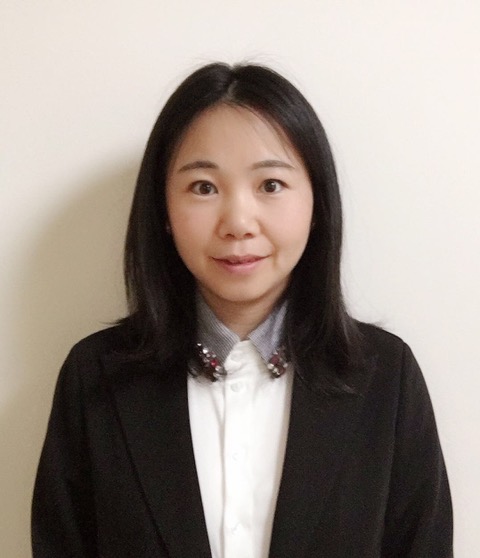Embedded Certificate in Data Science
The Data Science certificate is a cross-disciplinary program designed through a partnership between the Computer Science and Mathematics programs for students who consider the data scientist profession. The certificate offers the theoretical and practical background in key areas of computing and statistics allowing students to develop high-demand skills and enhance their prospects for both industry careers and graduate studies. With an emphasis on best practices, students will learn the fundamentals of data analytics and machine learning while gaining proficiency in standard programming languages used in the field. Applying socially and ethically responsible principles, students will navigate the data science pipeline from data acquisition to model deployment and will learn to transform findings into compelling and actionable knowledge.
This is an embedded undergraduate certificate.
For more information, please see the Academic Catalog.
The Data Science certificate is a cross-disciplinary program designed through a partnership between the Computer Science and Mathematics programs for students who consider the data scientist profession. The certificate offers the theoretical and practical background in key areas of computing and statistics allowing students to develop high-demand skills and enhance their prospects for both industry careers and graduate studies. With an emphasis on best practices, students will learn the fundamentals of data analytics and machine learning while gaining proficiency in standard programming languages used in the field. Applying socially and ethically responsible principles, students will navigate the data science pipeline from data acquisition to model deployment and will learn to transform findings into compelling and actionable knowledge.
This is an embedded undergraduate certificate.
Eligibility
- The Data Science certificate is open to all Computer Science and Mathematics majors pursuing a B.S. in Computer Science or Mathematics at the University of West Georgia.
- Students can apply to the Data Science certificate program in their home department.
Program Location
Carrollton Campus
Method of Delivery
Face to Face
Accreditation
The University of West Georgia is accredited by The Southern Association of Colleges and Schools Commission on Colleges (SACSCOC).
Credit and transfer
Total semester hours required:
This program may be earned entirely face-to-face. However, depending on the courses chosen, a student may choose to take some partially or fully online courses.
Save money
UWG is often ranked as one of the most affordable accredited universities of its kind, regardless of the method of delivery chosen.
Details
- Total tuition costs and fees may vary, depending on the instructional method of the courses in which the student chooses to enroll.
- The more courses a student takes in a single term, the more they will typically save in fees and total cost.
- Face-to-face or partially online courses are charged at the general tuition rate and all mandatory campus fees, based on the student's residency (non-residents are charged at a higher rate).
- Fully or entirely online course tuition rates and fees my vary depending on the program. Students enrolled in exclusively online courses do not pay non-Resident rates.
- Together this means that GA residents pay about the same if they take all face-to-face or partially online courses as they do if they take only fully online courses exclusively; while non-residents save money by taking fully online courses.
- One word of caution: If a student takes a combination of face-to-face and online courses in a single term, he/she will pay both all mandatory campus fees and the higher eTuition rate.
- For cost information, as well as payment deadlines, see the Student Accounts and Billing Services website
There are a variety of financial assistance options for students, including scholarships and work study programs. Visit the Office of Financial Aid's website for more information.
Required Courses
Application and survey of problem-solving methods in artificial intelligence with emphasis on heuristic programming, production systems, neural networks, agents, social implications of computing, and professional ethics and responsibilities.
A broad introduction into the theoretical foundations and essential algorithms for supervised and unsupervised learning with a focus on best practices and real-world problems.
This course involves a thorough examination of both simple linear regression models and multivariate models. The course requires extensive use of statistical software for confidence intervals, statistical tests, statistical plots, and model diagnostics.

Ana Stanescu, Ph.D.
Associate Professor of Computer Science
Fengrong Wei, Ph.D.
Professor of Mathematics
Duane Yoder, Ph.D.
Interim Executive Director of Innovation Development and External PartnershipsProgram Specific Admittance Guidelines
The Data Science certificate is open to all Computer Science and Mathematics majors pursuing a B.S. in Computer Science or Mathematics at the University of West Georgia. Students can apply to the Data Science certificate program in their home department.
Specific dates for Admissions (Undergraduate only), Financial Aid, Fee Payments, Registration, Start/End of term, Final Exams, etc. are available in THE SCOOP.
- Recognize problems that can be solved with data science techniques and apply strategies to collect and transform complex big data into structured datasets suitable for statistical inference.
- Demonstrate an understanding of the linear regression model, its limitations, and extensions, as well as diagnose and correct real data problems with the generalized linear model.
- Use machine learning and data mining algorithms to build models and objectively evaluate their performance to make data-driven predictions, communicate results to technical as well as non-technical audiences, and make informed recommendations.
